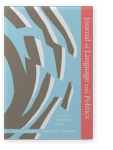Vol. 22:2 (2023) ► pp.204–224
Activism or slacktivism?
A content-framing analysis of the 2020 #ChallengeAccepted campaign against feminicides in Turkey
Online activism can be expressed through many forms. While advocates claim that it is a fully-fledged form of activism, opponents state that it is no more than vain ‘slacktivism’. Against this background, this work analyses the ‘#ChallengeAccepted’ movement, which went ‘viral’ in July 2020 to raise awareness about femi(ni)cides in Turkey, in the aftermath of the murder of the female student Pinar Gültekin. Focusing on the use of the hashtag via Twitter, the work embraces the perspective of online activism as a “continuum of participation”, composed of several levels. The results show how hashtag activism has worked as a means of knowledge dissemination and action, and that also slacktivism has contributed to the cause, thanks to the “oxygen of amplification” effect, which made users inform and get informed, refocus the campaign towards its original purpose when it digressed, and distribute its message.
Article outline
- 1.Introduction
- 2.Pinar Gültekin’s murder and the #ChallengeAccepted movement
- 3.Femi(ni)cides and the Istanbul Convention
- 4.Theoretical framework, corpus, and methodology: Activism and slacktivism
- 5.Results and findings
- 5.1No reference to Turkey (SC1)
- 5.1.1No active engagement or diversion towards another cause in SC1
- 5.1.2Support in SC1
- 5.2Reference to Turkey included (SC2)
- 5.2.1No active engagement or diversion towards another cause in SC2
- 5.2.2Support in SC2
- 5.2.3Providing information and getting users involved
- 5.2.4Getting users involved: Petitions and donations
- 5.1No reference to Turkey (SC1)
- 6.Conclusions
- Notes
-
References
